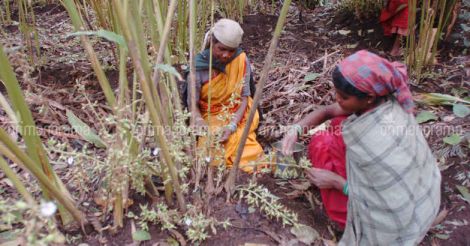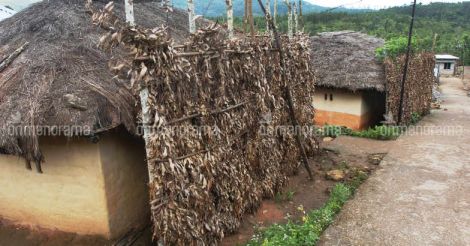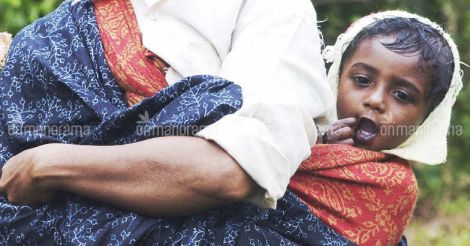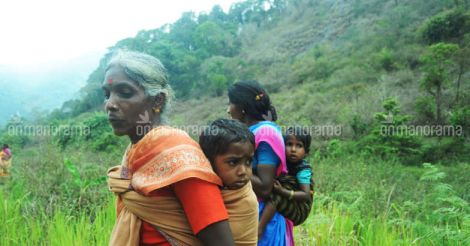Thodupuzha: The mob lynching of an emaciated tribesman has brought to the surface the miserable existence of primitive tribal communities of Kerala’s Attappadi region. Their plight is no different elsewhere in the state.
The Idukki district, the home of the fourth-largest tribal population in Kerala, has seen a spurt of violence against the indigenous communities. The police have registered 168 cases in the last five years under a law that is aimed at the prevention of atrocities against Scheduled Tribes.
The tribal people have been systematically robbed of their land and belongings in the district. Whenever they organize themselves to protest the injustice and ask for land, their agitations have been dealt with by force by the mainstream society.
Tribal women are easy prey for exploiters. The number of unwed mothers is on the rise in the Idukki district. The Adimali Tribal Development Office has identified 16 unwed tribal mothers. The Thodupuzha office has identified 49 unwed mothers. Crimes against children are also on the rise.
Landless in their own land
The district has hundreds of tribal families without a roof over their head. The Munnar, Marayur, Mankulam, Adimali and Udumbannur areas have a large concentration of tribal people. There are 33 tribal settlements including Venmani, Mullaringad, Nadukani, Kurukkanad, Koovakandam, Kannambadi, Moothampadi, Kizhakkemattukkatta, Vellallu, Memarikkudi and Poovanthikudi.
Of the 55,815 tribal people in the Idukki district, 3,078 families do not have habitable houses. As many as 317 families do not own any land.
The original inhabitants of the area were displaced by the British who cleared large swathes of forest to plant coffee, tea and cardamom. The indigenous people were confined to appalling conditions in the colonies as more and more forest land was claimed by later settlers.
The democratic governments were of no help either. A lack of empathy and poor planning ensured that tribal development remained a farce.
 The original inhabitants of the area were displaced by the British who cleared large swathes of forest to plant coffee, tea and cardamom.
The original inhabitants of the area were displaced by the British who cleared large swathes of forest to plant coffee, tea and cardamom.When the government rehabilitated the tribal people at Chinnakkanal, they were moved to a strip of land dangerously close to an elephant corridor. They had to flee their promised land to stay away from the rampaging beasts.
The families ended up on the street when the forest department and the revenue department blamed each other over the distribution of the land. Even those tribesmen who were granted land could not find a means of livelihood in the new surroundings.
Miserable existence
The adivasi settlements in the Marayur and Mankulam areas have very few decent houses. Equally squalid is the condition in the Chambakkad colony and the Indira Nagar colony. The Nirmiti Kendra is in charge of building houses in these colonies.
Though the Agro Industries had offered to build houses for the tribal families in the Chambakkad colony, the construction was halted halfway through.
 The adivasi settlements in the Marayur and Mankulam areas have very few decent houses. Equally squalid is the condition in the Chambakkad colony and the Indira Nagar colony. Photo: Manorama
The adivasi settlements in the Marayur and Mankulam areas have very few decent houses. Equally squalid is the condition in the Chambakkad colony and the Indira Nagar colony. Photo: ManoramaThe Edamalakkudi hamlet has no proper road to connect it to the outside world. The adivasi settlements have no immediate access to healthcare facilities. The hamlets struggle for drinking water as the summer intensifies.
The distant tribal settlements have proved to be a cash cow for the governments. Crores of rupees of government fund allotted for road development in tribal areas have been lapsed as the authorities sat on the projects. As much as Rs 19.22 crore allotted by Nabard in the last five years has gone lapse.
Even the government grant for education, healthcare and wedding expenses does not reach the hamlets. The government projects to ensure nutritious development of the tribal people stumble on bureaucratic inefficiency.
Continuing encroachment
Antisocial elements are out to encroach the land belonging to tribal people in the Adimali, Padikkapp, Chinnakkanal and Peerumedu areas. The land mafia is edging out the tribal families who may not be able to produce sufficient records to prove their ownership of the land they had been living on.
Any land transaction in tribal area has to be approved by the district collector but the law has done little to safeguard the tribal community against the land grabbers.
 Tribal families are kept out of the bureaucratic machinery. Most of them do not even have birth certificates, rendering them ineligible for the various welfare programs rolled out by the central and state governments.
Tribal families are kept out of the bureaucratic machinery. Most of them do not even have birth certificates, rendering them ineligible for the various welfare programs rolled out by the central and state governments. The adivasis cannot even mortgage their land because they possess no title deeds. At least 62 families at Padikkappu has lost their land to encroachers, adivasi leaders said.
Tribal families are kept out of the bureaucratic machinery. Most of them do not even have birth certificates, rendering them ineligible for the various welfare programs rolled out by the central and state governments. Even widows are denied pensions because they were not able to obtain the death certificates of their husbands.
Tribal children abandoned by their fathers are often denied a caste certificate, which is crucial for obtaining all the benefits provided by law.
Daylight robbery
The authorities indulge in embezzlement of funds meant for tribal welfare. The Vigilance and Anti-Corruption Bureau is probing the former panchayat president and secretary at Arakkulam in a case of embezzling Rs 7.60 lakh meant for computer training of young tribesmen. They are accused of forging documents to claim money on behalf of absentee attendees.
Read more: Latest Kerala news |

























 The Idukki district, the home of the fourth-largest tribal population in Kerala, has seen a spurt of violence against the indigenous communities. Photo: Manorama
The Idukki district, the home of the fourth-largest tribal population in Kerala, has seen a spurt of violence against the indigenous communities. Photo: Manorama